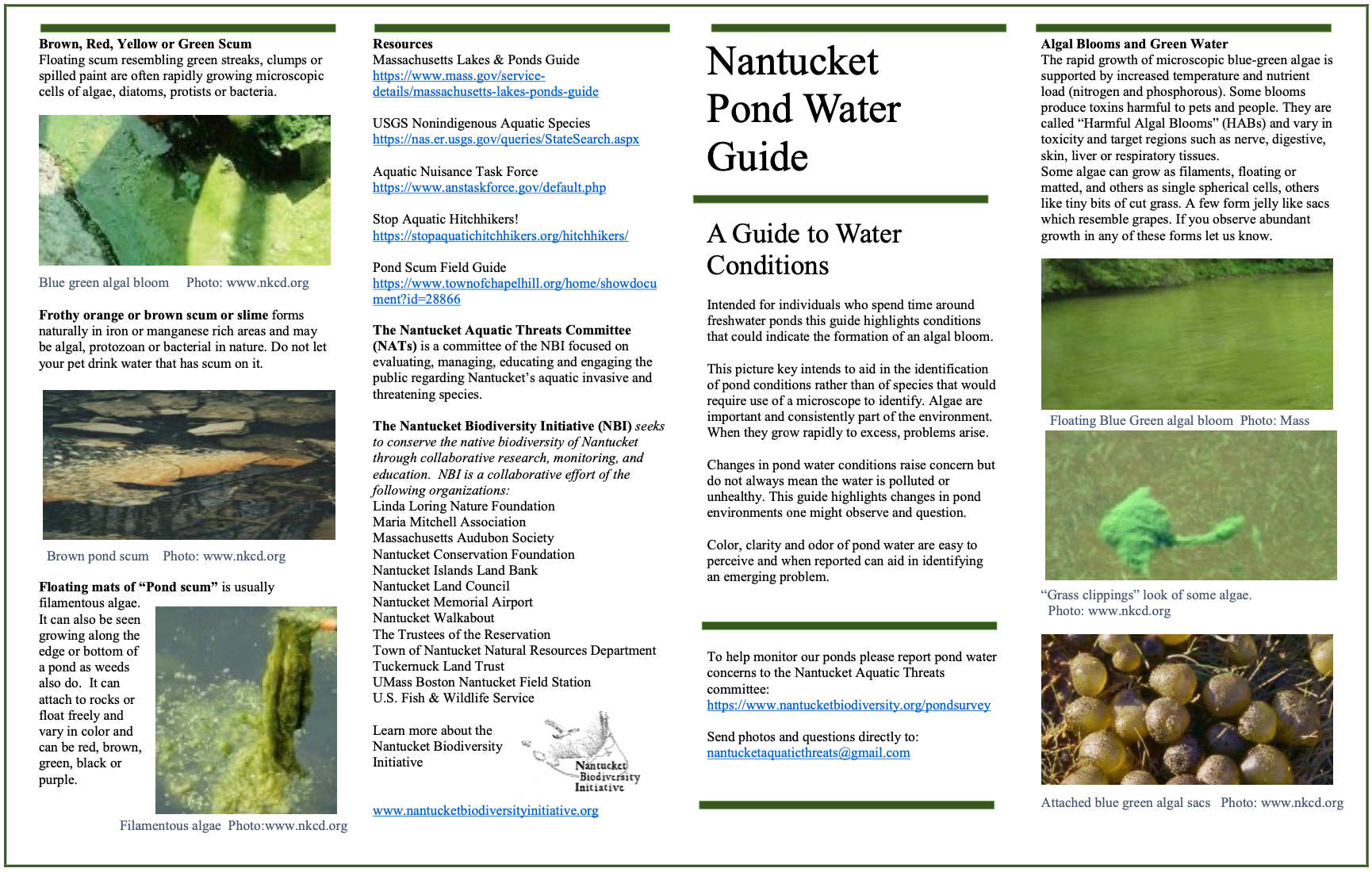Island Ponds
Nantucket Ponds Condition Survey
Have you observed any signs of potentially unhealthy ponds on Nantucket and want to report your observations? Submit them below with what you saw (possible algal bloom, oil sheen, overgrown aquatic vegetation, etc.) and where you were. We will monitor submissions and direct them to the appropriate landowner to respond. If you have additional questions email nantucketaquaticthreats@gmail.com.

We have also created a Nantucket Pond Water Guide. It describes many of the possible conditions that you may encounter while observing a pond and can be a helpful resource when filling out the
pond reporting survey below.
Thank you for reporting your observations and helping to keep our ponds healthy!
Please fill out the form below as best you can and we will be notified to check out the location.
Additional Research Topics
Stay informed with the latest news from Nantucket Land & Water Council


